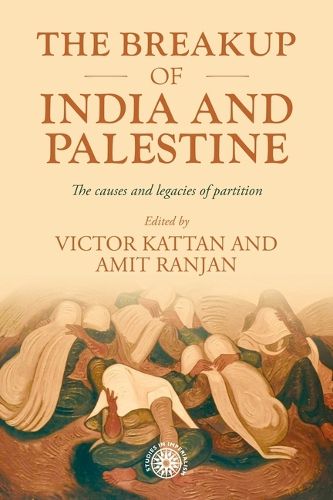Readings Newsletter
Become a Readings Member to make your shopping experience even easier.
Sign in or sign up for free!
You’re not far away from qualifying for FREE standard shipping within Australia
You’ve qualified for FREE standard shipping within Australia
The cart is loading…






These chapters provide deeply researched narratives of the links between partition in India and Palestine in 1947. It focuses on the shared dynamics that shaped both regions, such as violence, the role of religion in politics, majoritarian politics, and the persistence of imperial modes of power.
This book is the first study of political and legal thinking about the partitions of India and Palestine in 1947. The chapters in the volume, authored by leading scholars of partition, draw attention to the pathways of peoples, geographic spaces, colonial policies, laws, and institutions that connect them from the vantage point of those most engaged by the process: political actors, party activists, jurists, diplomats, philosophers, and international representatives from the Middle East, South Asia, and beyond. Additionally, the volume investigates some of the underlying causes of partition in both places such as the hardening of religious fault-lines, majoritarian politics, and the failure to construct viable forms of government in deeply divided societies.
$9.00 standard shipping within Australia
FREE standard shipping within Australia for orders over $100.00
Express & International shipping calculated at checkout
These chapters provide deeply researched narratives of the links between partition in India and Palestine in 1947. It focuses on the shared dynamics that shaped both regions, such as violence, the role of religion in politics, majoritarian politics, and the persistence of imperial modes of power.
This book is the first study of political and legal thinking about the partitions of India and Palestine in 1947. The chapters in the volume, authored by leading scholars of partition, draw attention to the pathways of peoples, geographic spaces, colonial policies, laws, and institutions that connect them from the vantage point of those most engaged by the process: political actors, party activists, jurists, diplomats, philosophers, and international representatives from the Middle East, South Asia, and beyond. Additionally, the volume investigates some of the underlying causes of partition in both places such as the hardening of religious fault-lines, majoritarian politics, and the failure to construct viable forms of government in deeply divided societies.